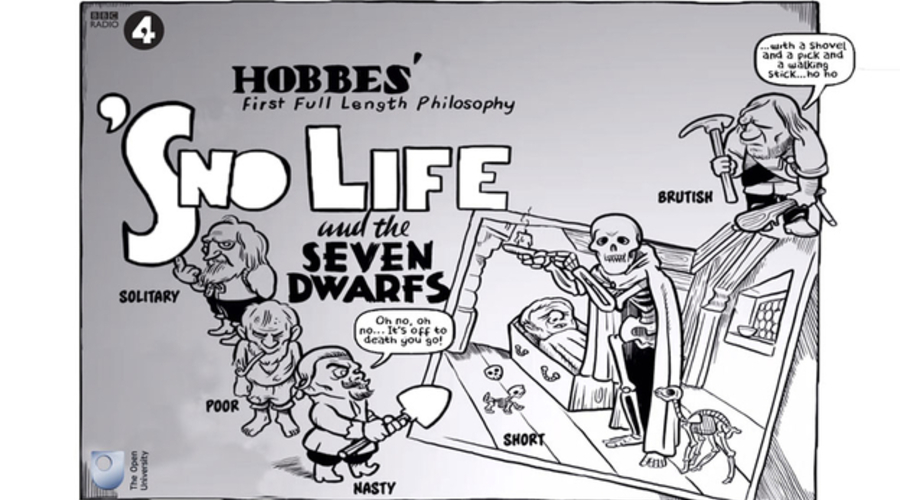Radio 4 have branched out into video animation to accompany a new landmark radio series.
Prominent thinkers such as Simone de Beauvoir and Thomas Hobbes have been transformed into cartoon characters, voiced by The Simpsons actor Harry Shearer and The Fall star Gillian Anderson, for an animated series designed to accompany a new Radio 4 show.
A History of Ideas, presented by Melvyn Bragg, is an ambitious 60-part radio series looking at some of the big questions that have preoccupied thinkers throughout the ages.
Contributors to the programme include philosophers, theologians and lawyers who discuss a weekly question such as 'what does it mean to be free?'.
The series will be broadcast every day for three weeks across four instalments, running until until the end of summer 2015.
As well as dedicating a week's programming to each question, Radio 4's factual commissioner, Mohit Bakaya, has ordered a series of 48 short animations to accompany the series online, to further explore some of the challenging ideas presented.
Produced by Cogni+ive, an animation company specialising in educational storytelling, and narrated by Shearer, who is best known for playing many characters from The Simpsons including Mr Burns and Ned Flanders, and Gillian Anderson, the two minute-long videos are designed to help reinforce complex ideas for the listener.
While the main purpose of the animations is to compliment the radio series, there is also a hope that the videos, which have been uploaded to YouTube as well as the Radio 4 website, will reach new audiences.
"There's a community out there we've seen, with TED.com, Brain Pickings and The Economist online, with a real appetite for clever ideas," says Bakaya.
The station's stablemate Radio 1 has recently launched its own video channel on BBC iPlayer, featuring exclusive video content from Radio 1 presenters, and clips from events such as the Radio 1 Teen Awards.
The amount of video content produced by Radio 4 will remain limited for the time being, according to Bakaya.
"We have a whole range of ways we're trying to be more active digitally and online and bring in other audiences. If this goes well, then maybe we'll do more of this sort of thing."
By Pippa Shawley

